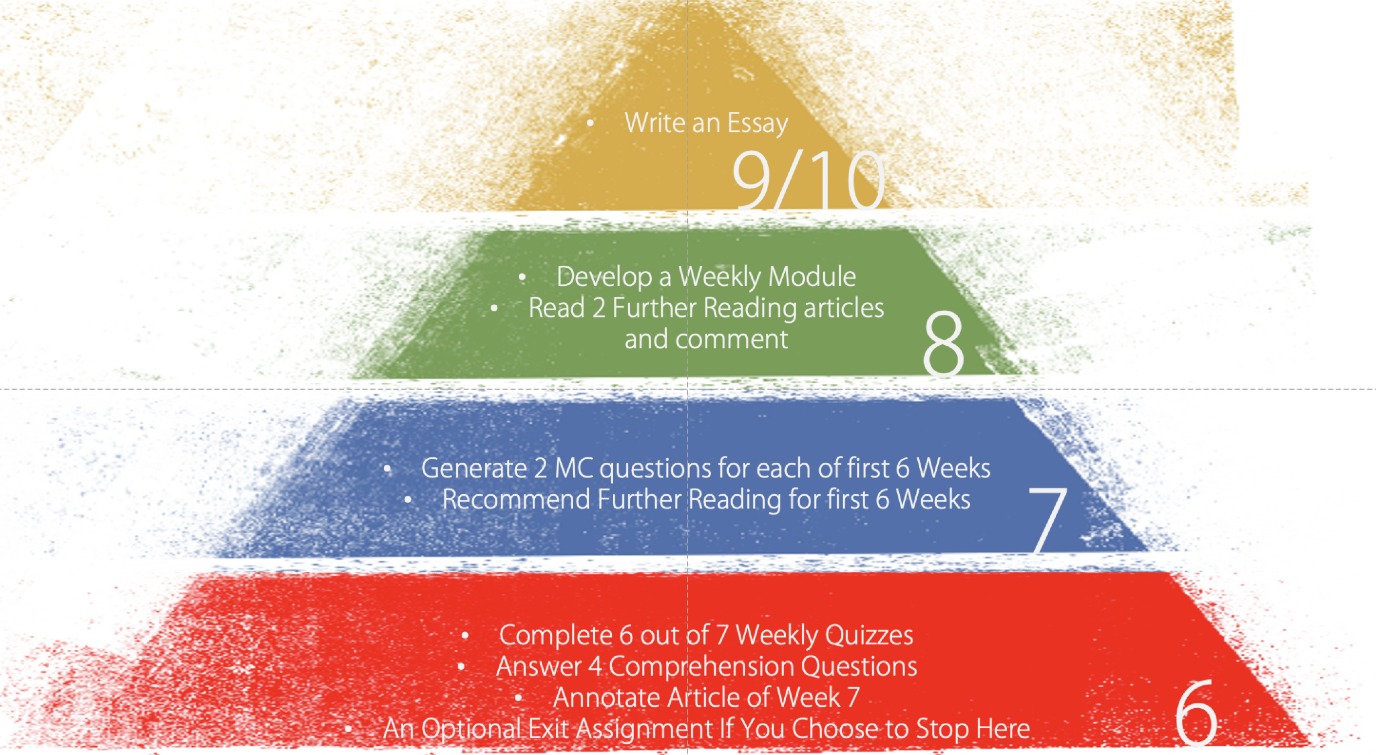Embracing uncertainty: Empowering students through specifications grading

In this monthly blog about new ways of teaching , educators talk about their innovative, creative and impactful teaching initiatives. From unusual teaching methods to new technologies - everything is covered. How did these ideas come about and what impact does it have on students?
This month: Laurent Krook , Assistant Professor of Psychology and Anastasios Sarampalis , professor of Psychology on specifications grading.
Uncertainty is an uncomfortable position and yet we have to make hundreds of decisions each and every day based on incomplete, unreliable and contradictory information. In science, this positioning of uncertainty is especially important, where we are often called upon decision-making based on incomplete information.

This notion provides the frame of reference of our course Research Methods: Theory and Ethics, in which 600-700 second-year psychology students with a large variety of backgrounds, interests, skills and motivations are dealing with a very difficult topic: how to understand and evaluate evidence and form conclusions while reflecting on this process of knowledge accumulation?
With this context as the backdrop of our course and the pandemic as a catalyst for change, we realized that traditional assessment forms were either too reductionistic to comprehensively assess all learning outcomes (i.e. multiple choice-exams) or unrealistic within courses of this size (i.e. essays). There was a need for an equitable form of assessment that would match our own pedagogical values of testing. Specifically, it needed to be a clear, continuous and transparent form of assessment that would provide insight into the learning process throughout the course, not merely at the end. Specification grading was the right fit for these values.
A clear path to equitable assessment

Specifications grading is a form of mastery-based grading that is focused on the specific learning outcomes or "specifications" for each task that students can complete during the course. This approach provides clear and specific expectations for students and helps to ensure that all students are assessed based on the same standards. By breaking down all the learning outcomes into specific assignments and tasks, and specifying the exact requirements to complete a task, students are better able to understand what they need to do to be successful and can track their progress more effectively.
Through this form of assessment, students are able to pick and choose which tasks or set of tasks to complete and therefore which grade they want to obtain in the course. As an examiner, the grading procedure is henceforth simplified as well; we merely have to grade each separate task as pass or fail - with some degrees of flexibility incorporated - or, where possible, have the tasks graded automatically. In our course, this results in the following assessment plan (figure 1), which is divided into four separate sets of tasks that students can opt to complete. What is important to notice is that the sets are incremental, which means that in order to obtain a high grade, students need to complete all underlying sets of tasks that correspond to the lower grades as well.

Benefits and impact of specifications grading in the course
For our students, this approach allows for more flexibility and autonomy, as they can choose which specifications they want to meet and when they want to complete them. This helps to improve student motivation and engagement, as students are more invested in the learning process and can work at their own pace towards the specified deadlines of their liking. We have noticed that this reflection and empowerment of their own learning also resulted in high quality deliverables throughout the course.
Furthermore, what we appreciate about specifications grading is that it also helps to promote a growth mindset among students, as it emphasizes the importance of continuous improvement and mastery. By focusing on specific tasks - and therefore different learning outcomes - students are encouraged to view mistakes and failures as opportunities for growth and development, rather than as a mere reflection of their intelligence or ability.
While no silver bullet for each course or programme, we firmly believe that specification grading is a great addition to our course due to the high amount of engagement we see from our students. Each year, the structure and flexibility of this course, combined with the specification grading assessment procedures, amasses into thousands of comments, ideas, suggestions and other forms of interactions with our students, which makes each iteration of the course a very pleasant experience and provides a good insight into the individual learning processes. Lastly, specification grading helps us to provide a context in which psychological research methods is (societally) relevant, interesting, useful, and engaging.
If you are interested whether specifications grading would fit your course, feel free to reach out to us or listen to the Degrees of Freedom-podcast episode we’ve recently recorded on specifications grading, where we extensively reflected on our student’s and our own experiences with this assessment form so far.
Further reading
| Last modified: | 11 November 2024 12.25 p.m. |
More news
-
24 March 2025
UG 28th in World's Most International Universities 2025 rankings
The University of Groningen has been ranked 28th in the World's Most International Universities 2025 by Times Higher Education. With this, the UG leaves behind institutions such as MIT and Harvard. The 28th place marks an increase of five places: in...
-
05 March 2025
Women in Science
The UG celebrates International Women’s Day with a special photo series: Women in Science.
-
16 December 2024
Jouke de Vries: ‘The University will have to be flexible’
2024 was a festive year for the University of Groningen. In this podcast, Jouke de Vries, the chair of the Executive Board, looks back.
